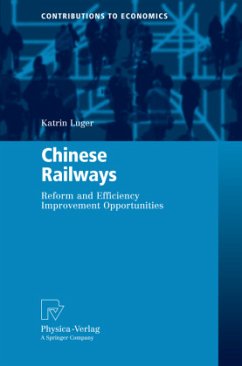Although being huge by any measure, Chinese Railways are a bottleneck for economic growth in China. The state-owned enterprise returns a small profit but is severely capacity constrained and burdened with inefficiency. A comprehensive reform and efficiency improvement program needs to be developed in order to enable Chinese Railways to support further GDP growth in China. Application of industrial economics to the case of Chinese Railways suggests that moderate deregulation of e.g., the freight business could make Chinese Railways fit for future growth. Operational improvements need to complement this development, such as a redesign of the schedule or the introduction of value added services in the freight business. Based on interviews with Chinese experts, benchmarking with railways in the US, Germany, Russia, and Japan as well as broad coverage of Chinese-language sources, the book makes detailed recommendations on how to design a comprehensive turnaround program for Chinese Railways.
From the reviews: "'Chinese railways' is a timely attempt at pointing out some of the major improvements opportunities in one of the sector that has least undergone reforms. ... it is full of interesting data points and provides a good coverage of the industry. ... Luger's book provides a valuable read for scholars and practitioners wishing to study the Chinese railway sector." (Marc Laperrouza, Competition and Regulation of Network Industries, Issue 3, 2008)








